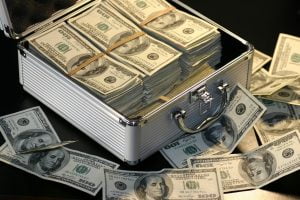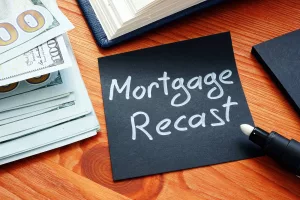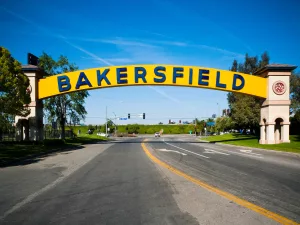In New York City, the typical real estate commission ranges from 5% to 6% of the sale price. This makes broker commissions the highest closing cost for sellers in the area. While commissions have generally declined in other parts of the country over the years, they have remained essentially unchanged in NYC.
commissions have generally declined in other parts of the country over the years, they have remained essentially unchanged in NYC.
Lower commission rates are more common in Queens and specific neighborhoods in Brooklyn that are farther from Manhattan. In contrast, broker commissions in Manhattan are among the highest in the United States and some of the highest in the world. For comparison, the average real estate commission rate for sellers in London is less than 2%, which is roughly one-third of what sellers pay in New York City.
Several factors contribute to the high commission rates in NYC. They include the prevalence of buyer brokers, the perceived complexity of selling properties (especially co-ops), brokerage policies against reducing commissions, and a general lack of transparency regarding commission rates.
What’s the Average Real Estate Commission in NYC?
The average real estate commission in New York City (NYC) typically ranges from 5% to 6% of the sale price. According to recent articles from the New York Times and The Economist, the national average commission charged by agents for selling a home is approximately 5.4%.
These commission rates tend to be highest in Manhattan and in nearby neighborhoods in Brooklyn and Queens, such as Park Slope, Brooklyn Heights, and Long Island City.
If you’re looking to estimate your closing costs as a seller in NYC, you can use our interactive closing cost calculator.
Due to the high commission rates and average sales prices in the city, the total dollar amount earned by brokers here is among the highest in the world. Many top brokers in NYC have gained celebrity status through successful television shows and their accomplishments in the industry.
However, there are no reliable statistics on the average real estate commission in NYC.
The lack of available data on real estate commissions is primarily because most brokered sales record their final sale prices and commission amounts in private databases, such as the RLS Broker Database of the Real Estate Board of New York (REBNY) or the OneKey MLS.
These databases typically do not publish information about real estate commission amounts publicly.
Furthermore, many MLS broker databases only document the commission paid to the buyer’s agent, known as the co-broke commission, rather than the total commission rate. As a result, it is challenging to determine how much the listing agent receives and what the overall commission rate is. Typically, once a deal closes, the buyer agent’s commission data in the MLS becomes inaccessible.
This means that even real estate professionals with MLS access are unable to view the historical commission data charged by other listing agents in NYC.
Additionally, NYC listing agents often avoid discussing standard or average commission rates publicly. Doing so could represents collusion or price-fixing. This lack of transparency regarding commission rates makes it difficult for potential sellers to understand what commissions other home sellers are paying.
Consequently, many NYC sellers feel compelled to sign a 6% commission listing agreement after hearing from a few agents, friends, and neighbors that this is the prevailing rate.
Why Have NYC Real Estate Commissions Remained High?
The average real estate commission rate in New York City remains high for several reasons:
Lack of Commission Transparency
No centralized or public database provides information on typical real estate commission rates in NYC. As a result, most potential sellers find it challenging to determine what others are actually paying in commissions.
This lack of transparency, combined with ongoing references by NYC listing agents to a “6% commission,” leads many busy sellers to reluctantly agree to pay close to 6% in total commissions.
Brokerage Restrictions on Reduced Commissions
While commission rate fixing and collusion among real estate brokerages are illegal under antitrust laws, many sellers using the NestApple For Sale By Owner (FSBO) service report that most brokerages require agents to sign listing agreements with a minimum total commission of 5%. It’s important to note that numerous clients we’ve spoken with have interviewed traditional 6% brokers before deciding to list their properties through a Flat-Fee RLS listing service. Additionally, several brokers and salespeople from these firms have confirmed this information.
In summary, a significant reason the average real estate commission in NYC remains high is that many brokerages do not allow their agents to work for lower commissions. For most of these firms, offering only a 1% full-service option is not feasible.
Many New Yorkers have demanding careers and family commitments, so the typical seller may not have the time or inclination to negotiate commission rates with a listing agent. Aggressively negotiating could create resentment, potentially leading to the agent being less motivated to work hard on the sale.
This situation is one of the primary reasons why the 1% full-service option is gaining popularity among sellers in New York City.
Dominance of Buyer Brokers in NYC
One of the main reasons commissions remain high in New York City is that most buyers prefer to work with buyer agents. While over 90% of today’s homebuyers begin their search online, more than 80% ultimately purchase their homes through a buyer’s agent. As a result, buyer brokers continue to hold a significant presence in the NYC real estate market.
Typically, the seller is responsible for paying a commission of 5% to 6%, usually split evenly between the listing agent and the buyer’s agent. Sellers are often reluctant to offer less than 2.5% to 3% to a buyer’s agent, as this could lower the interest in their listing among represented buyers, who make up over 75% of the buyer demographic.
In New York City, sellers typically sign an exclusive listing agreement that specifies a fixed commission rate, which is paid at closing.
Use It or Lose It
In New York City, when a buyer does not have representation, the entire commission paid by the seller goes solely to the listing agent, rather than being shared with a buyer’s agent. This scenario encourages buyers to work with buyer’s agents. As their services are effectively free to the buyers
Sellers pay a fixed total commission regardless of whether a buyer’s agent is working.
Consequently, sellers are under pressure to offer higher commissions to buyers’ agents, while buyers have an incentive to seek out buyer brokers, as it costs them nothing.
To connect with buyers represented by agents, sellers need to list their properties in the city’s broker database, known as the RLS (REBNY Listing Service). All REBNY member brokerages have signed a Universal Co-Brokerage Agreement, meaning that when you list your property on the RLS, over 15,000 buyer agents get a notification that you are offering a commission for bringing a buyer to your home.
Unfortunately, many sellers in NYC believe that the only way to list on the RLS and fully market their homes is to hire a traditional listing agent who charges a 6% commission. However, many sellers are unaware that they can list their homes on the RLS, as well as on various online platforms, with a zero percent listing agent commission.
Perceived Complexity of Selling in NYC (Especially for Co-ops)
In New York City, listing agents often present the process of selling apartments as being more challenging than in other parts of the country, implying that only a seasoned agent can successfully manage it. They focus on tasks such as vetting the financials of prospective buyers and preparing the co-op board package, suggesting these tasks are complicated and best handled by professionals.
While it is true that selling a co-op in NYC can be more complex than selling a condo in another city, it is not impossible.
Through our agent-managed NYC FSBO Listing Service (Flat Fee RLS), we have assisted hundreds of NYC home sellers in achieving success without needing a traditional full-service real estate agent. If you do your homework as a For Sale By Owner (FSBO) seller in NYC, you will find it manageable to prepare a co-op board application, coach your buyer for the co-op board interview, and oversee the overall sale process.
Understandably, many first-time homebuyers may feel intimidated by the complexities of purchasing a co-op in NYC, which can make it tempting to seek guidance from an experienced buyer’s broker.
Has the Typical NYC Real Estate Rate Commission Gone down Recently?
Yes and no. While most traditional brokerages typically do not openly discount their commission rates, several alternatives with reduced commission options for sellers have emerged in recent years.
These options include listing a property as For Sale By Owner (FSBO) in New York City or using full-service listings for just a 1% commission. Today, sellers have more choices than they did ten years ago. However, a typical seller in NYC who does not conduct thorough research will likely still end up paying a total commission of 5% to 6%.
Recently, the average real estate commission rate in NYC has begun to align more closely with what is charged in the rest of the country and in London. The introduction of competition among listing agents, thanks to flat-fee MLS listing services and the legalization of buyer rebates, has made real estate commissions in NYC more competitive overall.
On the downside, seller closing costs can range from 8% to 10% of the sale price. The upside is that the majority of these closing costs are broker commissions, which are generally the easiest costs to reduce or eliminate. Additionally, you can significantly lower your buyer closing costs by requesting a buyer closing credit.
How Is the Typical Real Estate Commission Rate in New York City Shared Between the Listing Agent and the Buyer’s Agent?
In New York City, the typical real estate commission is split equally between the listing agent and the buyer’s agent. For instance, in a transaction with a 6% commission, each agent would earn 3%. However, if there is no buyer’s agent involved, the listing agent generally receives the entire 6% commission.
Before assessing whether the commission charged by a traditional NYC listing agent is reasonable, it is essential to understand the distribution of a standard real estate commission. Over 95% of NYC listings are sold by agents, which typically means that the seller has signed an “exclusive right to sell” agreement with the listing agent or the seller’s agent.
In an “exclusive right to sell” arrangement, the seller must pay a commission to the listing broker if the property sells during the term of the agreement, regardless of who brings in the buyer. This means that even if the owner informs a close friend or neighbor about the property and that person ultimately buys it, the listing agent will still collect the full 6% commission.
Analysis:
Broker commission rates in London are significantly lower—less than a third—than those in New York City (NYC). This difference largely stems from the fact that in the UK, it is common for only one agent to close a transaction.
When a buyer’s agent brings in a buyer, the traditional commission rate of 6% is split equally between the listing agent and the buyer’s agent, resulting in each brokerage earning 3% of the sale price.
When a seller hires a listing agent, that agent typically posts the listing along with the real estate commission in a local NYC brokerage database, allowing other agents to view it and seek potential buyers. If another agent successfully finds a buyer who ultimately purchases the apartment, the listing agent must share—or co-broke—half of the real estate commission with the buyer’s agent.
It’s essential to note that the real estate commission a typical salesperson earns in NYC is often less than the stated commission percentage (6% or 3%), as salespersons must share a portion of the commission with the brokerage they represent.


